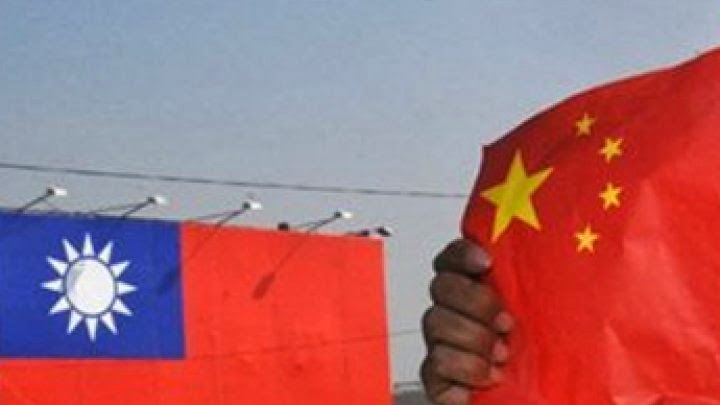 |
| image source |
Brandon Turbeville
Activist Post
With the taste of the Libyan tragedy, the Syrian destabilization, and the Ukrainian coup still lingering in the mouths of the citizens of those nations, the unfortunate fruits of those labors are now clearly visible in the enormous death toll, savagery, and austerity that is currently engulfing the victim countries.
Those destabilization campaigns, all initiated with violence from the beginning, yet portrayed as “peaceful democracy-loving protesters” by the Western media, were paraded in front of millions of American television screens night after night for the purpose of propagandizing a frighteningly gullible public at home who themselves have a natural inclination toward supporting the underdog in any given fight (unless that underdog is the overt target of the United States).
Still, while these protests were ever-present on American television screens, there was a stunning lack of air time devoted to the protests taking place in Thailand, a rare example of organic mass mobilization of everyday people disgusted with the incompetence and oppression of their ruling regime.
As is the case in Thailand, there remains a stunning lack of 24-hour coverage of the protests taking place in Taiwan, where a movement of activists, mainly young people, have taken to the streets in protest of a new trade agreement being negotiated between Taiwan and China.
The new agreement is centered around the greater integration of the economies of two states that have been antagonistic towards one another to say the least for many years. The deal, which was reached last June, focuses on “removing barriers to cross-strait trade in services such as banking, e-commerce and health care.” The protesters, along with some opposition parties, claim that the trade deal will “lead to an influx of Chinese businesses that will overwhelm Taiwanese competitors, threaten basic freedoms in areas such as publishing, and employ cheap mainland labour rather than Taiwanese.”
The protesters also accuse Taiwanese President Ma Ying-Jeou of being overly secretive about the trade negotiations.
President Ma has told reporters that Taiwan’s Parliament should approve the trade agreement so that Taiwan’s economy will not suffer in the future, echoing the fear-mongering statements of “free trade” promoters in the West who made similar claims that the United States would be “left behind” if it did not accept NAFTA and other free trade agreements. Time, of course, has shown that getting left behind when it comes to free trade and globalism is a blessing.
As Hsiao-Hung Pai writes for the Guardian,
The deal will give China’s large media and publishing companies far greater access to Taiwan. The island’s China Times Group, for instance, was bought in 2008 by the pro-China Want Want Holdings, one of the largest food manufacturing conglomerates in Asia. Given Taiwan’s history – it split from China in 1949 after the KMT retreated to Taiwan – the fears are that there will be many more China Times-type takeovers. And, further, that economic dominance will lead to political dominance, under which the gains made by Taiwan’s people over the past two decades – such as a multi-party parliamentary democracy and press freedom – will be lost.
Bread and butter issues are also at the centre of the struggle as young people say they will bear the brunt of the impact. A statement by the protesters, who call themselves the Sunflower Movement, said: “Regardless of the political division between pro-unification with China and those pro-independence for Taiwan, this trade agreement will allow large capital to devour the majority of small peasants, labourers and small businesses, not to mention the difficulties the future generation of Taiwan will face.”
[…]
Taiwan’s trade unions believe that free trade agreements are bad for workers. The Taoyuan Federation of Trade Unions says that 16 years ago, when the government opened the island to free trade, it left “waves of Taiwan’s workers laid off without redundancy and pension… This will happen again with the trade agreement today”.
Wages in Taiwan, particular in service industries (in which 60% of Taiwan’s working people are employed), have been on the decrease, by 6% in the past decade. Under the trade agreement, China’s larger service businesses can enter and compete with the smaller service businesses in Taiwan, which will likely lead to the lowering of wages and worsening of conditions.
For this reason, those in Taiwan who are rightly opposed to the China-Taiwan trade agreement have organized street demonstrations and have even occupied government buildings, including Parliament, on several occasions over the past few weeks.
In fact, over 20,000 people have taken part in the protests and the storming and occupying of government buildings, with 100 people being injured on Sunday when the government headquarters was stormed and a crackdown by police subsequently followed.
The demands of the protesters, both students and workers, are essentially that the trade deal be abandoned or that, at the very least, it be returned to the cabinet and a national citizen’s conference called.
Of course, with the recent spate of Western-backed destablizations having taken place across the world, it is both justified and important to wonder if the West does not have its hands in the Taiwanese movement, now known as the Sunflower Movement.
While there is no direct evidence to connect the protest movement with NGOs, Foundations, or agencies of the U.S. government as of yet, it must be mentioned that the National Democratic Institute (NDI) and the International Republican Institute (IRI), both subsidiaries of the National Endowment for Democracy and hence, USAID, are indeed involved in the affairs of Taiwan. All of these organizations, of course, are notorious agents of destabilization.
 Indeed, it was reported by Taiwan Today that, on June 26, 2013, Taiwanese President Ma met with a visiting delegation of the NDI and IRI at the Presidential office in Tapei city. The delegation consisted of Constance Newman, a former U.S. Assistant Secretary of State for African Affairs, Alison Fortier, a member of the IRI Board of Directors, and Robin Carnahan and Sam Gejdenson, members of the Board of Directors of the NDI.
Indeed, it was reported by Taiwan Today that, on June 26, 2013, Taiwanese President Ma met with a visiting delegation of the NDI and IRI at the Presidential office in Tapei city. The delegation consisted of Constance Newman, a former U.S. Assistant Secretary of State for African Affairs, Alison Fortier, a member of the IRI Board of Directors, and Robin Carnahan and Sam Gejdenson, members of the Board of Directors of the NDI.
The conversations apparently focused on the “cross-strait relations” with China and the improvement of relations between the two governments.
For now, the United States is taking a neutral stance officially, but has stated that it supports the efforts of both sides to “reduce tensions and improve relations between Taipei and Beijing.”
Regardless of the individual players involved, organizational or otherwise, the China-Taiwan agreement is yet one more step in the ever-increasing race to implement a totally global economy. The constant push toward integration and harmonization is a movement that will not stop until every country in the world is brought together under the concept of interdependence and the world banking structure.
It is high time that such a movement sparks protests not only in Taiwan but the entire world.
Recently by Brandon Turbeville:
- Turkey Plans False Flag Against Syria; Blocks YouTube, Twitter
- The History and Science of Color Revolutions, Part 2
- New Legislation Could Force Feds To Crack Down on Legal Marijuana
Brandon Turbeville is an author out of Florence, South Carolina. He has a Bachelor’s Degree from Francis Marion University and is the author of six books, Codex Alimentarius — The End of Health Freedom, 7 Real Conspiracies, Five Sense Solutions and Dispatches From a Dissident, volume 1 and volume 2, and The Road to Damascus: The Anglo-American Assault on Syria. Turbeville has published over 300 articles dealing on a wide variety of subjects including health, economics, government corruption, and civil liberties. Brandon Turbeville’s podcast Truth on The Tracks can be found every Monday night 9 pm EST at UCYTV. He is available for radio and TV interviews. Please contact activistpost (at) gmail.com.


Be the first to comment on "Protests Rage In Taiwan Over China Trade Deal"